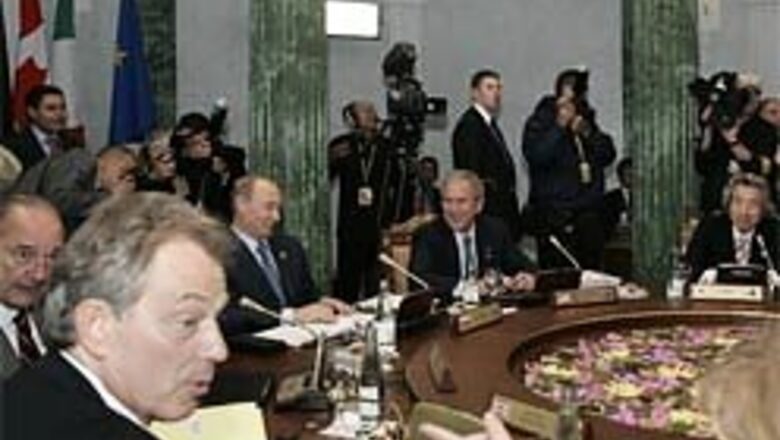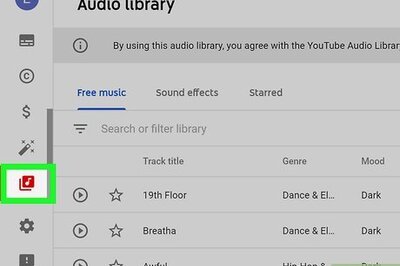
views
St Petersburg: World leaders were concluding an annual economic summit Monday in hopes that their statement blaming Middle East fighting on Hamas and Hezbollah and recognizing Israel's right to self defense would help break the cycle of violence.
Debate over the plan dominated discussions at this year's G-8 summit, overshadowing Russian President Vladimir Putin's agenda of education, energy security and fighting infectious diseases.
The leaders of major industrialized countries - the United States, Russia, Japan, Germany, Britain, France, Italy and Canada - were sitting down at their final sessions with seven leaders of the developing world. The nations represented include a trio of emerging economic powerhouses - China, India and Brazil.
Those talks were expected to focus on more traditional summit fare, such as restarting stalled global trade talks and implementing a major debt relief program for the world's poorest nations that was announced at last year's summit.
The G-8 leaders struggled on Sunday to come up with a unified position on how to deal with the escalating warfare between Israel and Hezbollah guerrillas in Lebanon.
The leaders' statement said extremist groups cannot be allowed to plunge the Middle East into violence. It also urges Israel to exercise restraint in its military campaign.
The statement was a compromise between a US position strongly supporting Israel's right to defend itself against terrorist attacks and the views of other G8 countries that Israel was engaging in excessive force.
The path toward a compromise opened Sunday when President Bush pressed Israel to show moderation. Bush said his message for Israel was ''defend yourself, but as you do so, be mindful of the consequences. And so we've urged restraint.''
The statement the G8 ended up releasing was carefully written so that different countries could claim it said different things. French President Jacques Chirac said it was evident from the statement that the G8 was calling for a cease-fire on both sides of the conflict. ''We all said it,'' Chirac insisted.
But Nicholas Burns, undersecretary of state for political affairs, disagreed, saying, ''There was no push by any country for a cease-fire.''
The Bush administration insisted the call for halting Israeli airstrikes was conditioned on Hezbollah releasing captured Israeli soldiers and ending missile attacks on Israel, although the statement was not clear on these points.
The US view was supported by German Chancellor Angela Merkel. She said the soldiers must be returned unharmed and attacks on Israel must stop. ''Then, of course, also the Israeli military action must be ended,'' she said.
Putin called the declaration ''a compromise formulation that in my mind is quite balanced.'' He said he and British Prime Minister Tony Blair had led the effort to hammer out the language in talks with other G8 leaders Sunday.
Putin had hoped this year's summit, the first held in Russia since the country became a member of the G-8 in 1998, would showcase his country's economic rebound following a devastating economic collapse in 1998.
Putin won support for joint statements on energy security, infectious diseases and education, but these documents mainly stated broad goals with few specifics on how they could be achieved.
Anti-poverty groups expressed disappointment that the G8 failed to build on last year's summit in Gleneagles, Scotland, where the leaders pledged to slash the debt of the world's poorest countries and double aid to Africa.
''Compared to the achievements of last year, the G8 did very little,'' said Max Lawson, a policy adviser for Oxfam, the international relief organization.

















Comments
0 comment